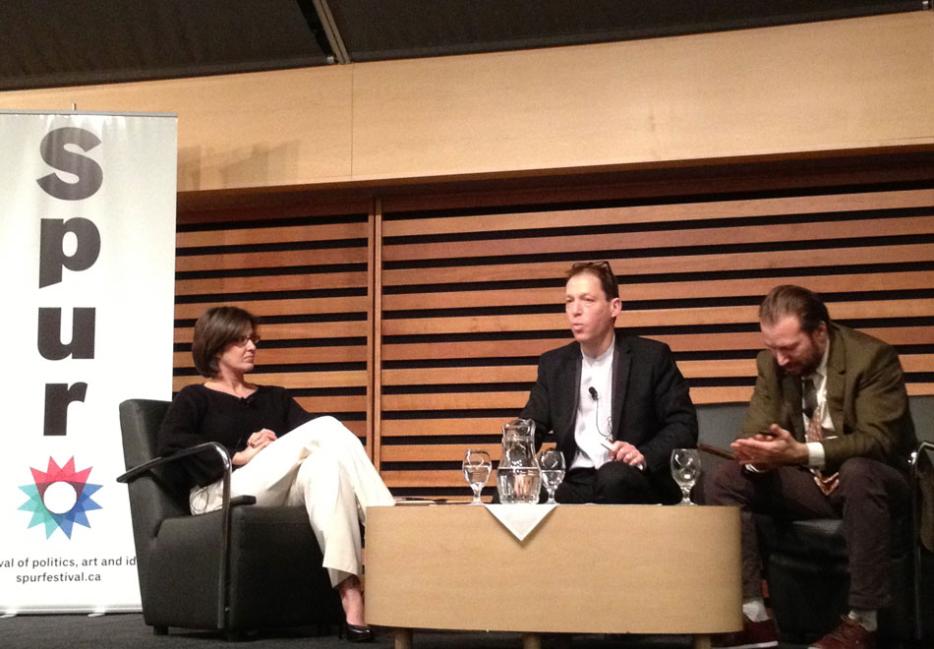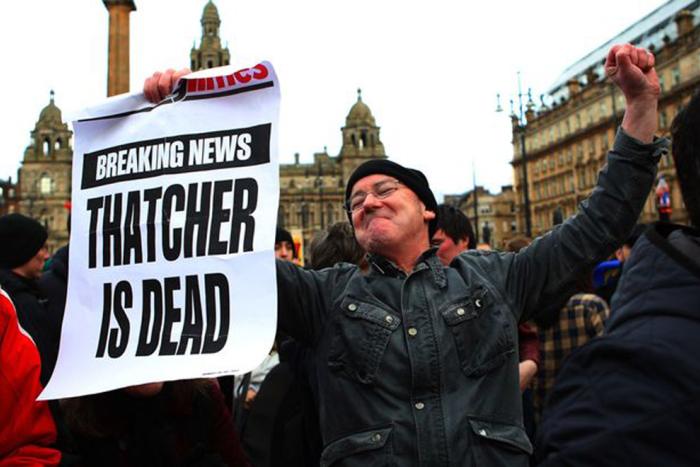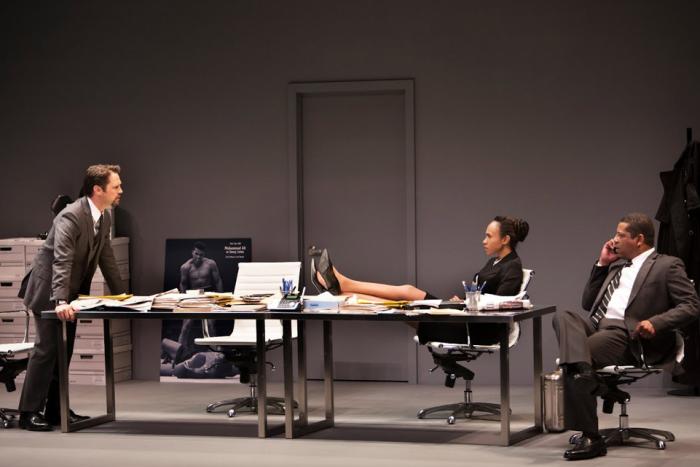The Spur Festival, Helen Walsh told us from the stage, is meant to be like a live-event magazine. After just six short months in development, the festival of art, politics, and ideas opened last night in one of the Toronto Reference Library’s few bookless rooms, the Bram and Bluma Appel salon filling instead with people—around 300 of us, in fact.
We were gathered for the opening keynote, a discussion between book futurist Hugh McGuire and beloved librarian and events programmer Paul Holdengräber from the New York Public Library, moderated by Toronto Life’s editor-in-chief, Sarah Fulford. With a slightly wobbly but persistent optimism, we found ourselves congregating to listen to a very broad but impassioned discussion of the Future of the Book. The conversation couldn’t help but be full of digressions, with the speakers annotating and expanding at length on each other’s remarks. Literature is an unwieldy topic, and the future by its very nature can’t exactly be pinned down.
Nonetheless I ended up settling into a seat right next to the future, embodied not so abstractly in the youngest member of the audience, a six-year-old boy. He was drinking a hot chocolate, and the smell of it distracted me in the best way.
Fulford opened with a loaded question, wondering what the guests thought was the definition of the book. “A book is what happens between the covers,” Holdengräber deadpanned.
“So it’s a binding issue?” Fulford provoked.
In the end, both Holdengräber and McGuire came to agree, though positioned as opponents they arrived at a collaborative definition, setting a discursive rather than dialectical set of terms for the evening. Rather than physical binding, McGuire said, “a book, in contrast with a Facebook stream, is a discrete work of authorship around ideas or emotions.” Holdengräber, referencing their mutual geniality to each other’s purported positions, paraphrased Robert Frost, saying “a liberal is a man who can never take his own side in an argument.” Everyone laughed.
“Whenever I hear the word ‘future’ I get worried,” Holdengräber continued, “for me, it’s not an either/or situation.” When gently pressed on the tension between digital and analog, he mused that for the moment “we live under the sign of the ampersand.” No one applauded, but I strangled a cheer.
Meanwhile, the future beside me put his head in his mother’s lap and fell asleep.
“But isn’t this the future?” Fulford asked, citing Skype as just one commonplace technology that was totally beyond the scope of her futural imagination as a kid. “Is this a transitional moment?”
McGuire picked up the ball: “By definition, this is the beginning.”
After the gorgeous Appel salon cleared out, festival-goers were invited to party with the panelists across the street, accompanied by the very talented funk cover band Soul Stew. It felt right, launching the festival like a magazine, dancing and talking and having a drink to the future of both the book and the festival. When I left, Helen Walsh and Paul Holdengräber were dancing and people all over the bar were talking and tapping their feet to “Very Superstitious.” Which, given that the future was on my mind, seemed entirely apt.






